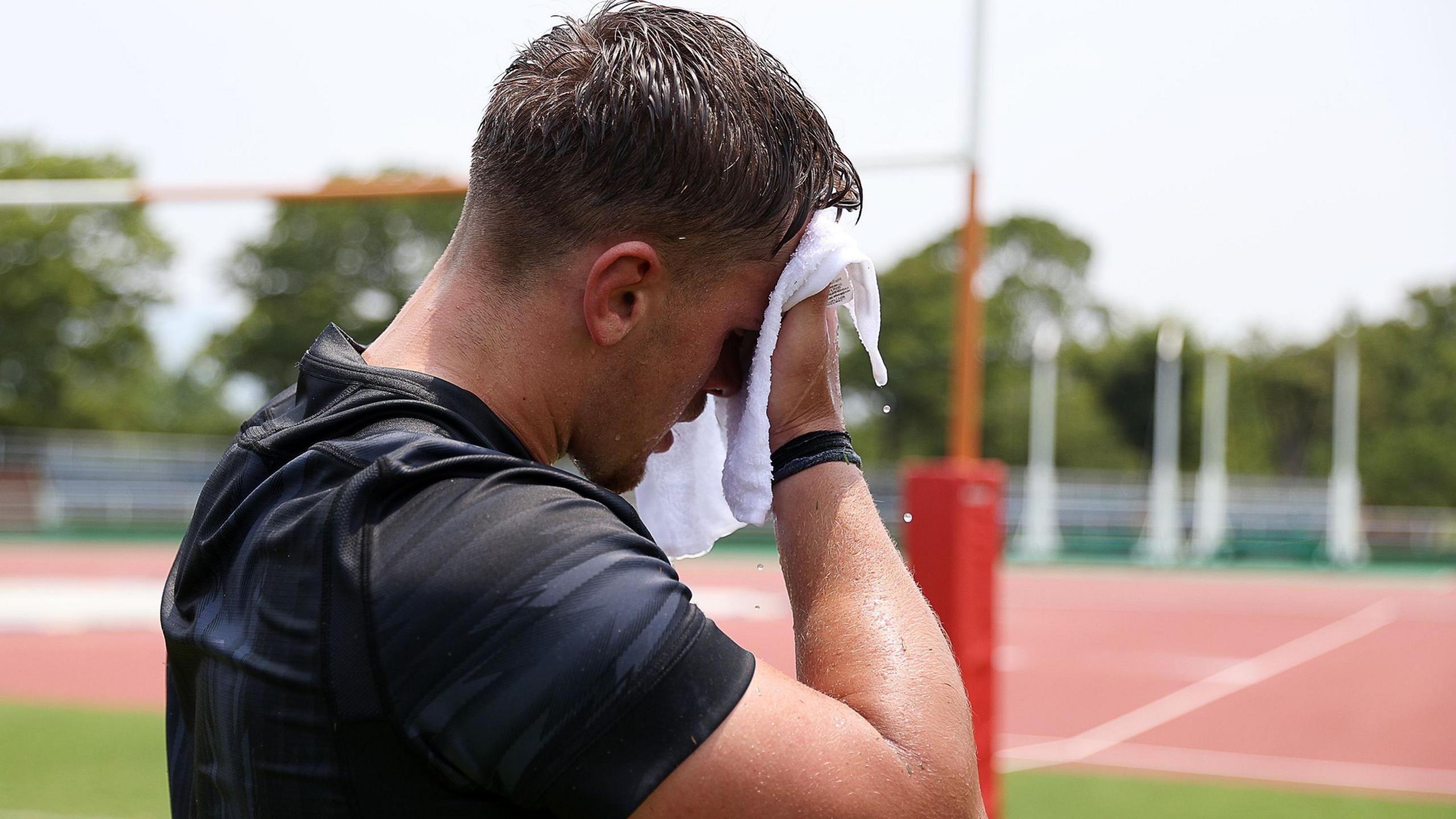 Image source, Huw Evans Picture Agency
Image source, Huw Evans Picture Agency
Alex Mann has been named in the Wales back row to face Japan on Saturday
Summer tour first Test: Japan v Wales
Venue: Mikuni World Stadium, Kitakyushu Date: Saturday, 5 July Kick-off: 06:00 BST
Coverage: Watch live on BBC One Wales and BBC iPlayer; listen live on BBC Radio Wales, BBC Radio Cymru & BBC Sounds; text commentary and highlights on BBC Sport website and app.
Wales and Japan will be given water breaks and an extended half-time period to help the two sides deal with the heat and humidity in Kitakyushu on Saturday.
The match is being played at 14:00 local time with temperatures expected to reach 33C, while there will also be a high level of humidity.
There will be a three-minute break midway through each half, while half-time will be extended to 20 minutes.
The measures are being taken under World Rugby's updated heat and air quality guidelines, which set out the measures to be taken to support players playing in hot conditions.
The half-time extension is the second most severe reading with the next step being to consider "delaying or suspending the game".
How hot is too hot for World Rugby?
The guidelines cover whether water breaks should be introduced, as well as measures such as extending the half-time break or if a game needs to be suspended.
Written by Dr Grant Lynch and Dr Olly Jay of the University of Sydney, the guidelines focus on a heat stress index rather than just basic air temperature.
The index runs between 0 and 250 with levels of heat stress determining what action will be taken.
World Rugby uses a number of devices which measure all the elements which go into calculating the heat stress Index, including air temperature, humidity, wind speed and ground radiation. The readings are then put into the following categories:
Low (0-99 heat stress index) – teams follow standard practice
Moderate (100 to 149) – players take on more fluids and reduce the amount of clothing worn
High (150 to 199) – players to have a three-minute cooling break in each half. Team also to implement cooling strategies such as iced towels
Very High (200 to 249) – half-time extended to 20 minutes
Extreme (250+) – consider delaying or suspending the game.
In the extreme case of a game being suspended, the guidelines also set out exactly the conditions that need to be met for a game to begin or resume:
The heat stress index must fall below 230 and remain below that level for 45 minutes
Weather forecasts indicate a low risk of the heat stress Index rising above 250 for the next two hours if the game has started or three hours if it has not yet begun
The match-day doctor is happy it is safe to play.
Preparations for heat and humidity
Wales have turned to ice towels and freezing flannel hats to combat the extreme conditions on this trip.
The thermometer has hovered around the 33C mark since the Wales squad touched down in Japan last Thursday for the two-Test series against the Brave Blossoms.
The draining humidity means the temperatures feel much hotter for Wales' players, who had eight ice baths at the side of the pitch during Tuesday's training session.
Each player in the 33-strong squad was required to spend a minimum of five minutes in an ice bath and 500 kilos of ice was used in the session.
Before Wales arrived in Japan, they prepared in a specially designated heat chamber at their Vale of Glamorgan training base, where they performed extensive exercises in extreme conditions.
Japan coach Eddie Jones says whoever deals with the conditions better will win the game and has previously commented he hopes for a hot day as the hosts try to "run Wales off their feet".

 9 hours ago
1
9 hours ago
1










 English (US)
English (US)